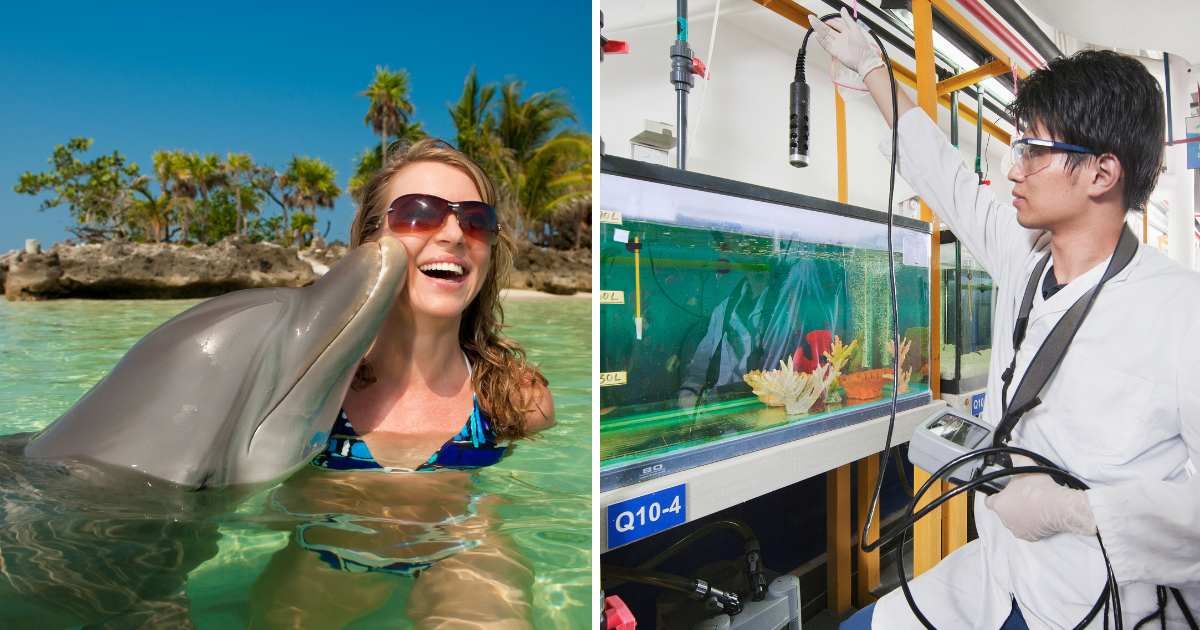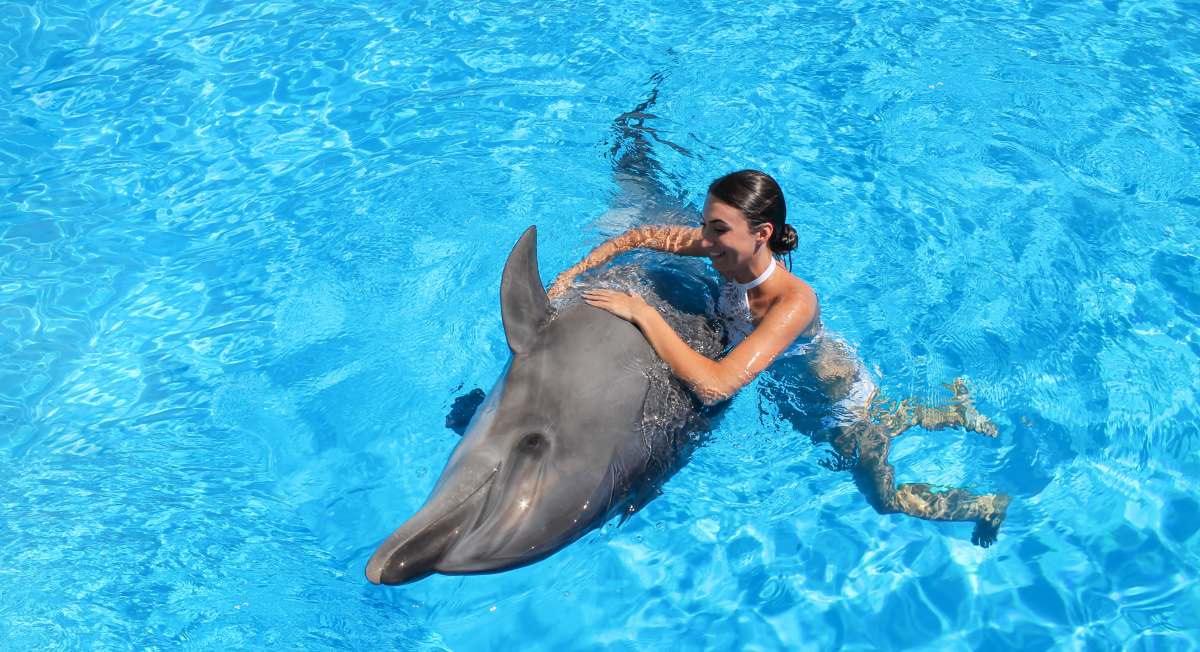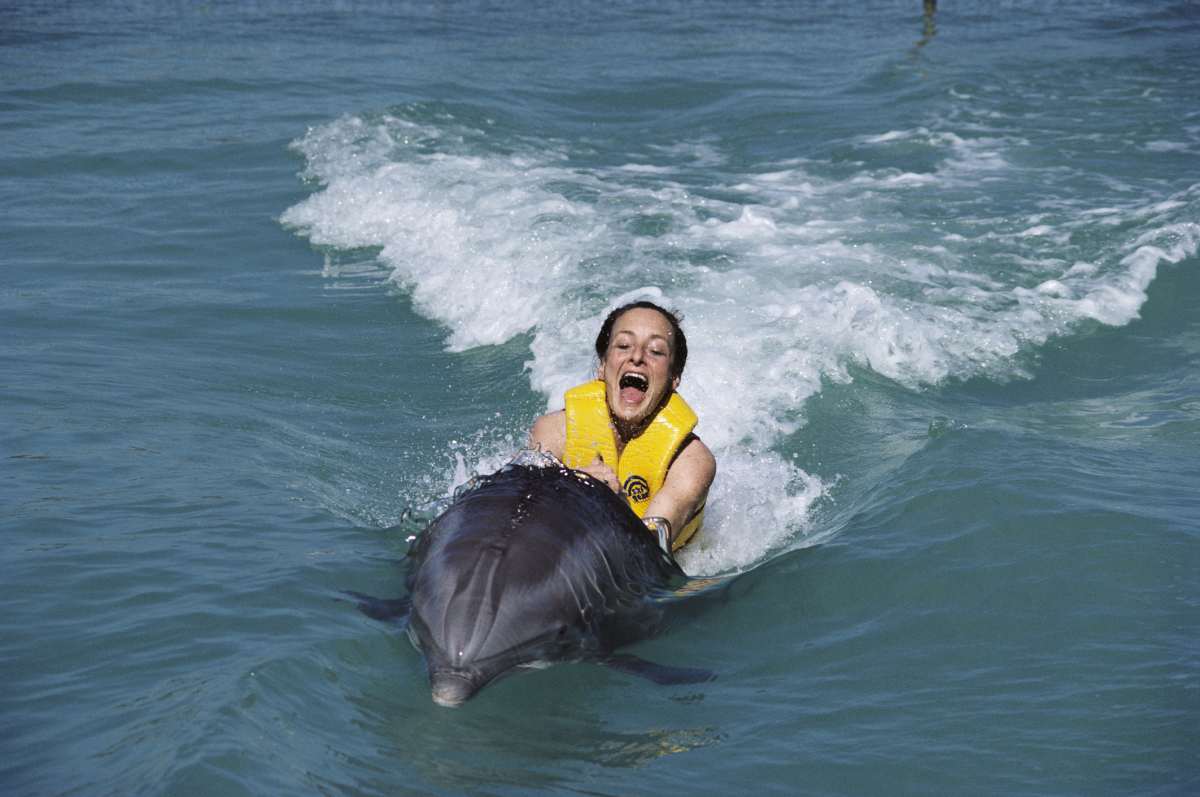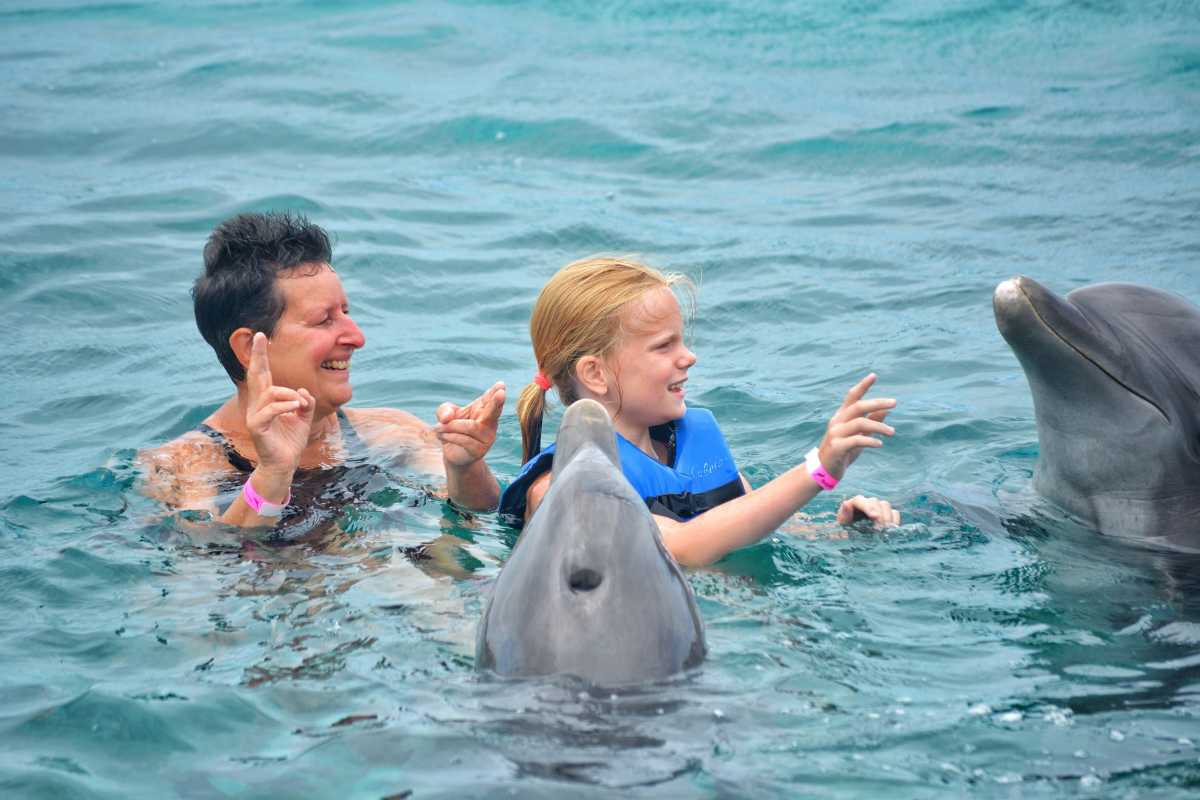Playful dolphin was seen getting belly rubs from tourists – alarmed by the sight, marine experts warned them to ‘stay away’

Dolphins are often celebrated for their playful and social nature, captivating swimmers and boaters alike with their acrobatic displays. These friendly mammals are never hesitant about some fun human interaction, as seen in a recent incident. According to the Daily Mail, a family engaged with a dolphin during their morning swim, but what seemed like an innocent interaction suddenly received a warning from marine experts.

On August 3, 2025, Lynda MacDonald, 50, her partner, son, and his girlfriend encountered a bottlenose dolphin during their 6 a.m. swim in Lyme Bay. The playful mammal delighted them with its acrobatics and upright swimming. "Out of nowhere, the dolphin immediately approached us and wanted to join in on the action," Lynda recalled. "It was friendly and playful. It even started guiding members of our group along the water with its beak. It was not distressed by our presence and was very confident around us." But joy turned to concern when it was discovered that the dolphin had been injured by a boat propeller in Lyme Bay.

Marine experts are concerned about the impact of human interaction, especially on dolphins that seek out people. The Marine Management Organisation (MMO) issued a warning following several dolphin injuries caused by boats in the region. "Dolphins may seem friendly, but they are wild animals," said an MMO spokesperson. "Human interaction can cause dolphins to lose their natural wariness, leading to injury or even death. Disturbed dolphins are also known to become aggressive toward people." Wildlife advocates warn that engaging with dolphins makes them vulnerable to predators and accidents.

Experts also warn against feeding or touching dolphins, as it can harm them. "Encouraging interactions with people can be dangerous for the animal, and people too," said Thea Taylor, managing director of the Sussex Dolphin Project. Though the dolphin in Lyme Bay seemed to seek connection, Taylor stressed not to approach wild animals. "Bottlenose dolphins are inherently curious animals and have often been shown to mimic behaviours," she explained. "They are powerful animals and may not intentionally hurt people, but accidents can happen."

The Lyme Bay dolphin's injury is part of a troubling pattern across the UK coast. A week earlier, the Cornwall Wildlife Trust revealed that several dolphins had been injured by the Mevagissey to Fowey ferry, some with severe dorsal fin damage. These reports have prompted marine charities like ORCA to urge boaters to be more cautious. "There have been incidents around the world where the dolphins' behaviour has escalated to harassment, and people have unfortunately been killed," said Lucy Babey from ORCA.
Conservationists are calling for greater respect in interactions with wild dolphins. The Whale and Dolphin Conservation advises boat owners, "Go slow – stay back – don't chase." They also urge tourists to stay at least 100 meters away from dolphins. Rebecca Allen, a marine conservation officer, emphasized the need for boaters to slow down as dolphin sightings rise along the Cornish coast. While the dolphin's behavior in Lyme Bay is unclear, similar incidents have been linked to misdirected sexual advances. Such behavior, though playful, can raise the risk of aggression and injury.